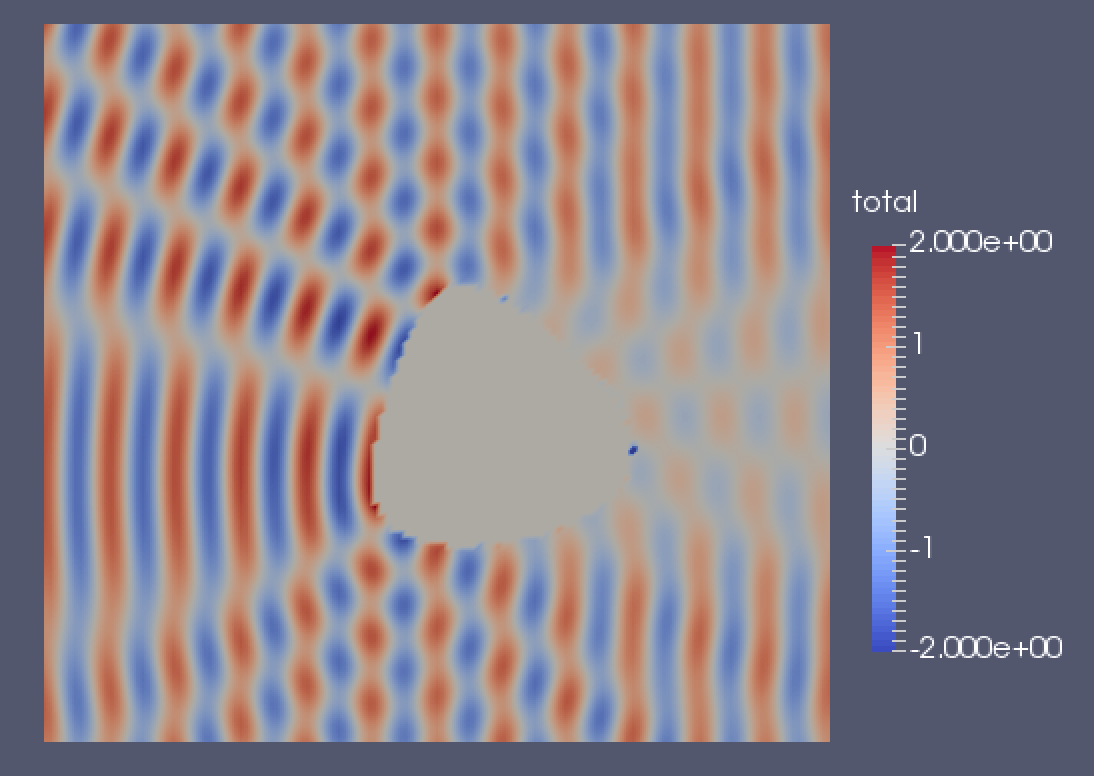Scatter is a simple program that computes the scattering of an incident wave on a 2D object. The total wave (incident + scattered) satisfies homomegenous Neunmann boundary conditions on the obstacle.
The numerical method integrates Green's functions along the boundary and requires that the normal derivative of the scattered wave cancels the normal derivative of the incident wave there. Using the assumption that the wavelength is much smaller than the size of the obstacle, the total wave amplitude is approximately set to zero on the shadow side. On the illuminated side, the scattered amplitude set to the incident wave amplitude as described in Morse and Feshbach, Methods of Theoretical Physics, pp 1551-1552.
The numerical approach involves looping over observer points, nodes on a uniform grid, with the scattered wave amplitude computed by summing all the reflection contributions from each boundary segment.
This program shows how a Python code can be modified to run faster using various techniques.
- Python 2.7.x (tested 2.7.14) or 3.x (tested 3.6.3)
- Scipy (tested 1.0.0, 1.0.1)
- Numpy (tested 1.13.1, 1.13.3)
- Boost (1.6.8, 1.6.1)
- C++ compiler
The directories below
|-\
|-original
|-vect
|-numba
|-cext
|-multiproc
|-mpi
|-openmp
contain different versions of the scatter code, all producing the same result but each having
a different implementation. For instance vect has a vectorised implementation and cext
has some functions coded in C++ for additional speed.
Regardless of the version of the code, use
python scatter.py
If you change the code and need to verify that the result has not changed,
python scatter.py -checksum
Sum of scattered field |amplitudes|^2: 4686.33935547
as this will print out a check sum. Additional options can be invoked to adjust the problem size
and other parameters (type python scatter.py --help for a full list). The result can be saved in a VTK file using
python scatter.py -save
VisIt, Paraview and other tools can then be used to visualise the field.
